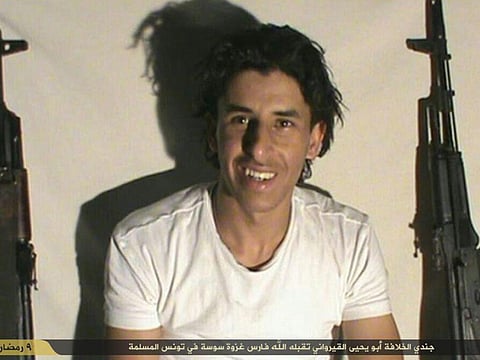These lone-wolf terrorists are not holy warriors
Nowadays any vengeful inadequate can claim a link with global terror. All it takes is a selfie and a flag for instant international infamy

With a grotesque matter-of-factness, suspected “Islamic terrorist” Yassine Salhi blamed “problems at home and at work” for beheading his boss last Friday. Salhi used a knife in the attack at Saint-Quentin-Fallavier in eastern France, before driving his delivery van into chemical canisters in an unsuccessful bid to blow up a factory.
Saif Al Deen Rezgui, who gunned down at least 38 people on a tourist beach in Tunisia on the same day, managed to get hold of an automatic weapon, but his profile was similar to Salhi’s. Neither man had a criminal record and each was described by friends and neighbours as “normal”. There is no evidence of either travelling abroad to train for combat and both had provoked little interest from the security services. They were thought to be “self-radicalised”, rather than members of a wider cell. Unlike Rezgui, Salhi survived and is said to be offering “personal reasons” as mitigation for his sadistic criminality. He has played down his links with global jihad, according to sources close to the case, instead suggesting that he simply did not like his victim.
Yet, crucially, he has told interrogators that he was interested in provoking a “media coup”: Making a name for himself in front of an audience of millions. Nowadays anyone can claim a link with Daesh (the self-proclaimed Islamic State of Iraq and the Levant) or Al Qaida and their dark crimes. All it takes are a few shouted slogans. So it is that, in a few minutes of pure evil, vengeful inadequates harbouring grudges go from being complete unknowns to internationally infamous killers — their characters and motivations picked over endlessly, as people try to explain their demonic behaviour.
Commentators invariably place them at the centre of a fantastical global mission, using thoroughly misplaced terms such as”holy warrior” and “religious struggle”. In fact, the men’s affiliation to Islam seems based mostly on a twisted attempt to justify their barbarity. By vaguely attaching themselves to a greater “cause” they feel their nihilism somehow has a purpose: That there is a reason for their cowardly championing of death and destruction. In this sense men like Rezgui and Salhi are “micro-terrorists” — wretched freelancers, so-called lone wolves, just like the killers who hacked British soldier Lee Rigby to death on a London street two years ago. Their atrocities could have been planned in a single day, yet they have an impact that provokes as much publicity and fear as any terrorist “spectacular” around the world this century.
Unparalleled exposure
The vast growth in social media platforms over the past decade, combined with 24-hour rolling news, has provided the micro-terrorists with unparalleled exposure. This is intensified by commentators and politicians, who associate the killers not only with “global brand” terrorist movements but also with Islam itself. So it was that British Prime Minister David Cameron disgracefully claimed that a significant number of Muslims in the UK “quietly condoned” Daesh — conjuring up the image of thousands of otherwise peaceful citizens gently nodding in agreement as they contemplated the next decapitation, burning or drowning.
In reality, making out that the lone wolves are anything other than sociopaths is like suggesting that the gunmen who regularly mass-murder their fellow citizens in the United States are also representative of the communities they come from. When Dylann Roof, a white 21-year-old, slaughtered nine African-Americans in a church Bible study class last month, his pitiful character and personal history were plain for all to see. His obsession with supremacist groups around the world, including disbanded historical ones, was rightly viewed as an indication of his low intelligence and huge inferiority complex.
If US President Barack Obama had played on Roof’s hatred and announced that many within mainstream American society “quietly condoned” his racism, there would have been an outcry. By making a connection between deranged, antisocial individuals and overwhelmingly moderate communities, politicians play along with the warped media myths that are the lifeblood of micro-terrorists. Just as news websites that post regular images of Daesh beheadings and other executions provide the group with some of its best propaganda, so sensationalist portrayals of the lone wolves will ensure that many more will emerge to take the places of those killed or imprisoned.
— Guardian News & Media Ltd
Nabila Ramdani is a Paris-born freelance journalist and academic of Algerian descent.



